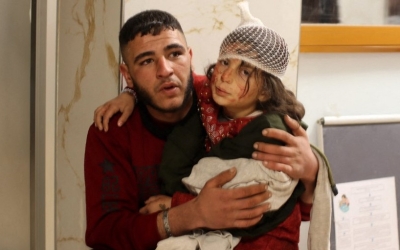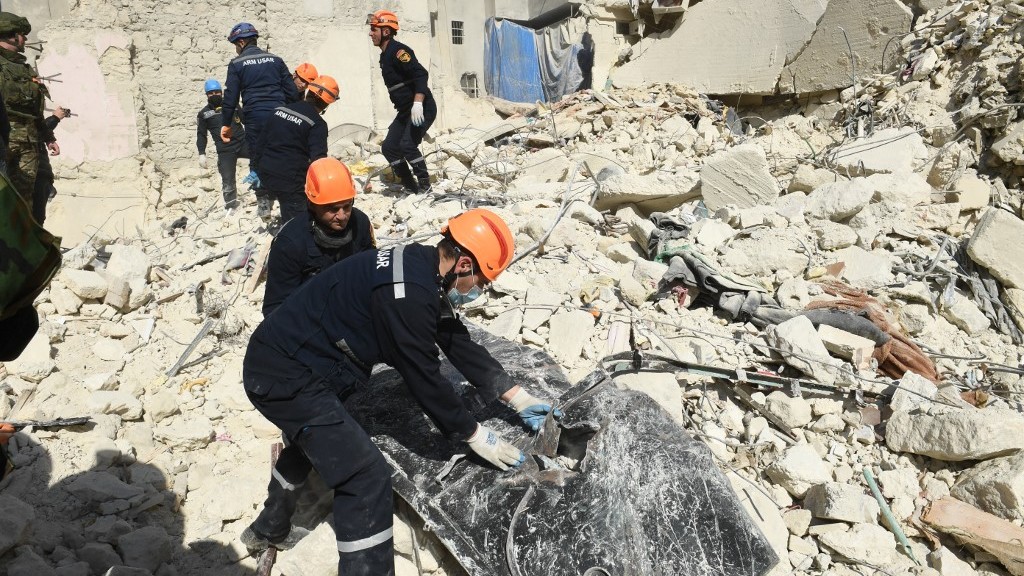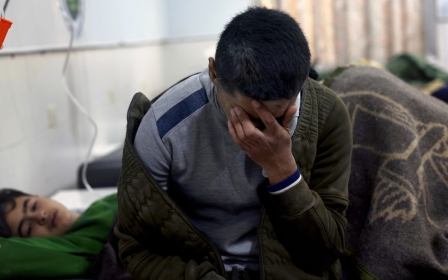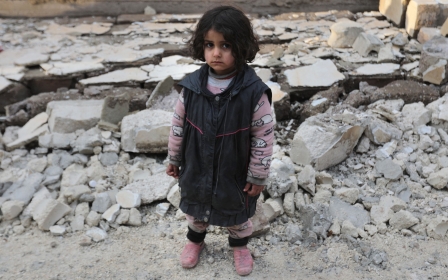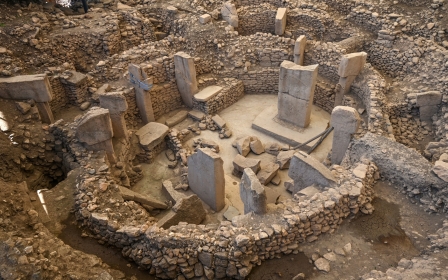Turkey-Syria earthquake: Aid gap reveals western double standards
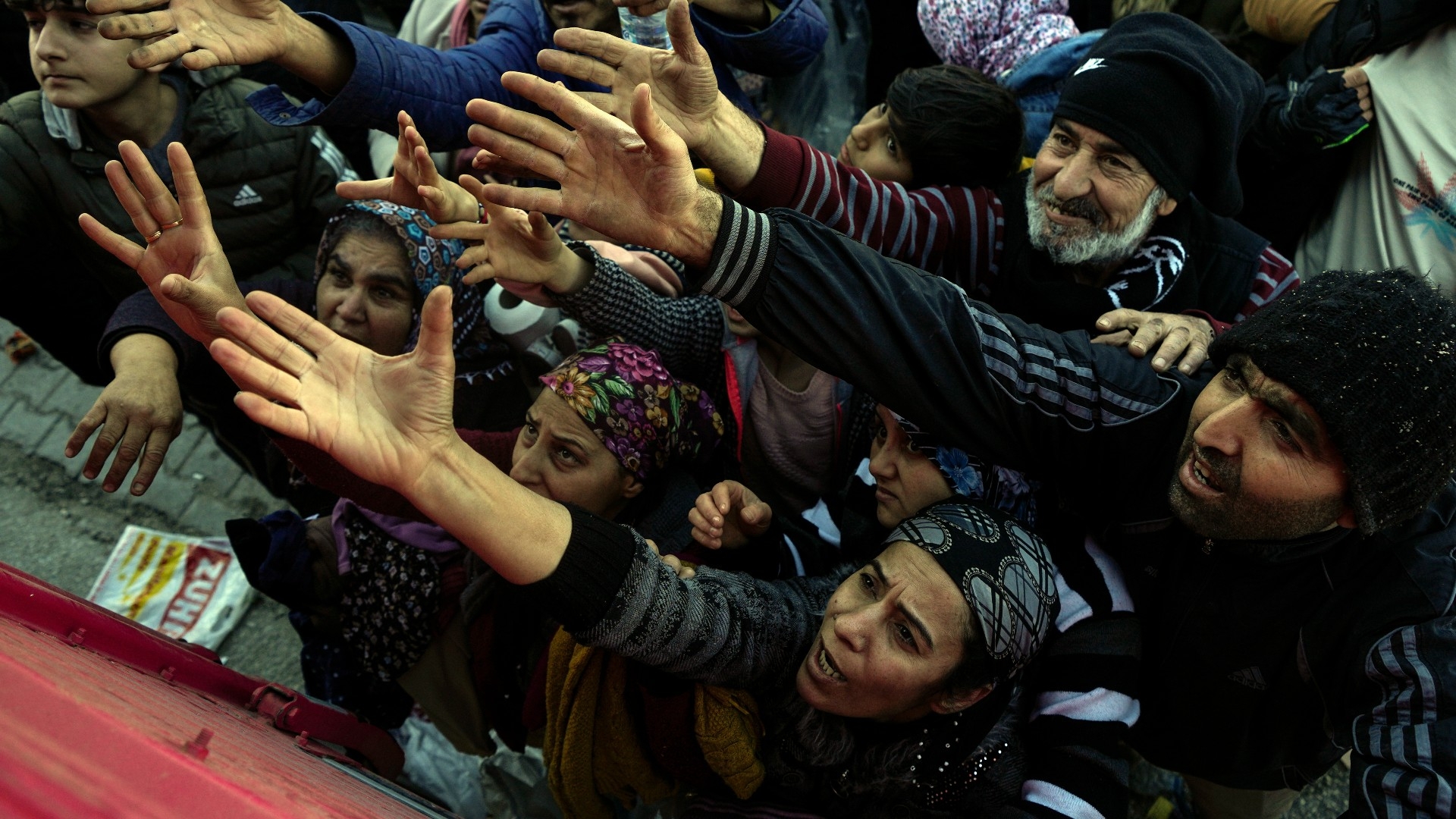
A 7.8-magnitude earthquake has struck Turkey and Syria, leaving at least 21,000 dead and tens of thousands injured, with the death toll expected to rise as countless people are trapped under the rubble.
According to emergency services, people trapped under the rubble can survive for up to seven days from the date of the earthquake, depending on weather conditions and their location. More than 75 countries have flocked to Turkey to offer all kinds of help, including states such as Armenia, Greece and Sweden, which are deeply at odds with President Recep Tayyip Erdogan.
Double standards are the true motto of countries that claim civilisation, humanity, democracy, freedom and concern for human rights
Turkey, which is theoretically prepared for natural disasters, believes that technical and human assistance is not commensurate with the scale of the disaster. But the West, led by the US and Europe, has not sent any immediate aid to Syria, which has yet to emerge from nearly 12 years of a devastating war, is subject to harsh western sanctions and lacks even a fraction of Turkey’s capabilities.
Have western leaders abandoned their values and put politics before human solidarity, or have these values always been flexible?
The European continent accumulated its wealth by colonising other countries and continents. The Portuguese, Spanish, British, Italian, Austro-Hungarian, French and German empires plundered countries to steal their natural resources to bring the wealth back to the European continent and build a strong industrial economy.
New MEE newsletter: Jerusalem Dispatch
Sign up to get the latest insights and analysis on Israel-Palestine, alongside Turkey Unpacked and other MEE newsletters
After the Second World War, the US empire emerged on the European continent. It extended its control and authority over the continent, where it reaped the spoils of war after the defeat of Germany.
After the end of the Cold War and the withdrawal of the Soviet Union from the international arena, the US remained unchallenged on the world throne. Europe, with its colonial mentality, decided to join in, hoping to share in the future spoils left by the US for its loyal allies.
Noble quest?
The West has set echoing standards, praising human rights and calling to account all those who violate them. It looks like a noble quest, but it turns out to be a cover for declaring war on any country that does not submit to the West’s dictates. Having failed to subjugate “rebellious” nations through military wars in Afghanistan, Iraq, Syria and Libya and the attempt to overthrow the Iranian government, the West has turned to punishing the people through harsh sanctions.
These sanctions have never toppled a government or changed its actions or policies. The aim is to turn the people against their rulers and replace them with others who are softer - or more obedient - to US policy.
Indeed, when former US Secretary of State Rex Tillerson took office, his department outlined the general instructions to be followed. “We should consider human rights as an important issue in regard to US relations with China, Russia, North Korea and Iran,” reads a leaked memo sent to Tillerson to guide his policy moves - suggesting human rights is a tool wielded only against enemies, rather than friends.
These lines sum up the real policy of the West, which is to wield a heavy stick in the face of rebellious countries and to turn a blind eye to human rights violations in the case of obedient nations.
The leaders of the European continent have followed the same guidelines, as Josep Borrell, the head of foreign relations and vice president of the high commission of the European Union, has said. “Europe is a garden … Most of the rest of the world is a jungle,” said Borrell, revealing the racist, colonial approach of the Europeans.
Borrell made another astonishing observation, saying that Europe’s decision to prevent Russian media from working on the continent was a protection of freedom of expression. Antonio Guterres, the secretary general of the United Nations, has also alluded to the need to monitor and combat false news on the internet. This shows the harmony between the messages of the UN and the Eurocrats. They are telling the world that freedom of expression - which the West has been glorifying for decades and which it claims distinguishes it from other countries that do not respect freedom of expression - consists of restricting it.
This is nothing new for the US and Europe, which jailed journalist Julian Assange and could extradite him to be imprisoned for a period of up to 175 years for leaking documents relating to US crimes against civilians in the Iraq War. Assange also exposed US national security and political records, just as the journalists did in Watergate and many other scoops, helping bring down western leaders without prosecution.
Misinformation campaign
Once again, the behaviour and values of western leaders have been exposed in their handling of the earthquake that struck Turkey and Syria. The mainstream media has falsely claimed that President Bashar al-Assad was not allowing humanitarian aid to reach the areas of Syria’s northwestern provinces under Turkish occupation, including border crossings.
Idlib province, which is under Turkish occupation, and the Syrian government-held provinces of Aleppo, Hama, Homs and Latakia were severely hit by the earthquake. This January, the UN voted to extend the opening of a border crossing to deliver aid to the northern province of Idlib via Turkey, with the agreement of the Damascus government and UN members. But the New York Times reported that the road was now blocked from the Turkish side because of the impact of the earthquake.
“It would be quite ironic, if not even counterproductive, for us to reach out to a [Syrian] government that has brutalised its people over the course of a dozen years now,” State Department spokesman Ned Price said on Monday.
A western diplomat confirmed that “the goal is to get the Syrian people to blame their president for western countries’ refusal to provide aid”. Again, the US and EU blaming the Syrian government for the lack of humanitarian assistance is a misinformation campaign to cover up European leaders’ lack of respect for fundamental values.
These European officials need to understand that in the event of war or natural disasters, people’s focus and attention is first directed toward assuring their own safety. They will then search for immediate family members, including children, spouses and parents who lived with them and might have been buried under the rubble.
The next step is to search for what remains of their personal belongings and see whether it is possible to salvage any valuable items, as the earthquake hit in the middle of the night, at 4:17am local time, without warning. Then, the survivors will need to be directed to a suitable heated shelter and overnight accommodation, or a place to wait out the next few weeks.
The next step is to find food for surviving family members and determine the fate of the rest, including more distant relatives. After the initial shock, many will realise that their “temporary” stay in a tent or selected shelter is not temporary; it is likely to take a very long time for the government to find a proper solution to rebuild their homes.
Humanity absent
Because of the scale of the destruction, it could be many weeks before the rubble is cleared. Few will be paying attention to national or international politics. Attention will be focused on the state’s social support for rebuilding or trying to absorb the disaster, and on finding solutions for those who have survived. Many families have been torn apart, thousands have been killed or injured, minors left alone must be cared for, and tens of thousands of people will need ongoing medical care. The burden on both the Turkish and Syrian governments will be enormous.
People might not think of blaming their leaders for the consequences of a natural disaster, but they will have plenty of anger towards others who have the opportunity to help but choose not to. In the case of Syria, a country exhausted by years of EU and US sanctions, the consequences are more painful for the population than in Turkey, which receives aid from all over the world.
In theory, sanctions exclude medical aid and medicines, but they can hinder the delivery of such aid, as we saw during the Covid-19 pandemic. Today, the West is creating obstacles to the delivery of humanitarian aid to Syria, and then blaming the Syrian government for the West’s lack of humanity.
Meanwhile, the Syrian government has appealed to its friends and foes alike to help the Syrian people. The airports of Aleppo and Damascus are open to anyone wishing to deliver humanitarian aid.
The humanity praised by western leaders is absent in the darkest catastrophe of a natural disaster
The UAE, Egypt, Iraq, Iran, Russia, China, Algeria and Tunisia have sent planes, and other countries such as Saudi Arabia, India and Pakistan have been providing assistance. But Syria needs hundreds of billions of dollars to rebuild the war-torn country. Syria’s oil and gas wealth is being stolen by the US, whose forces are stationed in northeastern Syria, controlled by the Kurds. Hundreds of earthquake aftershocks have been recorded in Turkey and Syria, causing further harm to already damaged buildings.
The humanity praised by western leaders is absent in the darkest catastrophe of a natural disaster. Dozens of hospitals have been destroyed, and thousands of people have lost their lives, family members, belongings and shelters. This is apparently not enough to move western leaders, who have sent tens of billions of dollars worth of weapons to support Ukraine after Russia launched its war, but prevented crumbs from reaching those who did not lose their lives in the earthquake.
This is a dangerous sign that western leaders have lost their core values. Double standards are the new absolute values, as revealed by recent events. Western leaders are disconnected from the values that Europeans and westerners believe in.
Countries that do not claim to be democratic have shown themselves to be more humane than western countries when it comes to helping those facing natural disasters. Actions reveal the true values of nations, and double standards are the true motto of countries that claim civilisation, humanity, democracy, freedom and concern for human rights.
The views expressed in this article belong to the author and do not necessarily reflect the editorial policy of Middle East Eye.
This originally appeared on Elijah J Magnier’s blog and has been lightly edited for clarity.
Middle East Eye delivers independent and unrivalled coverage and analysis of the Middle East, North Africa and beyond. To learn more about republishing this content and the associated fees, please fill out this form. More about MEE can be found here.



